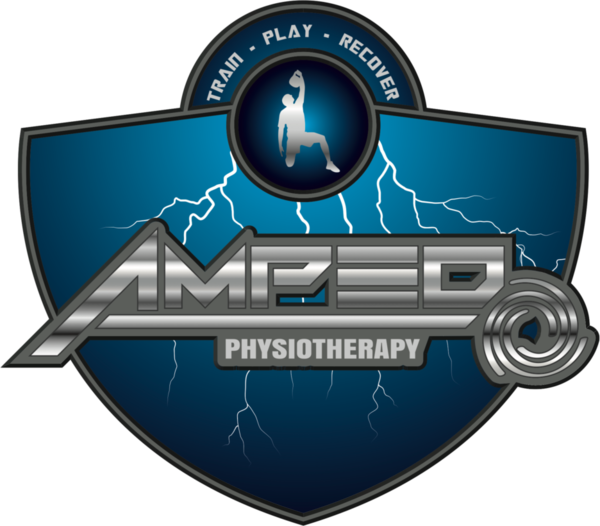Physiotherapy is a powerful tool for improving physical health, managing pain, and restoring mobility after injury or illness. Whether you’re dealing with chronic pain, recovering from surgery, or simply looking to improve your physical function, physiotherapy offers a range of benefits that can enhance your well-being. In this guide, we’ll explore the key benefits of physiotherapy, how often you should attend sessions for the best results, and which complementary treatments can further support your recovery.
How Physiotherapy Benefits Health and Well-Being
Physiotherapy offers a wide array of benefits that address both short-term issues and long-term health goals. Here are some of the most significant benefits:
- Pain Relief: One of the most common reasons people seek physiotherapy is for pain relief. Physiotherapists use a variety of techniques such as manual therapy, exercise, and modalities like dry needling to target the source of pain, reduce inflammation, and improve muscle function. This holistic approach to pain management is particularly effective for conditions like back pain, neck pain, arthritis, and post-surgical recovery.
- Improved Mobility and Flexibility: Whether due to injury, surgery, or age, loss of mobility can significantly impact daily life. Physiotherapy helps restore range of motion through targeted exercises that stretch and strengthen muscles and joints. This not only improves physical function but also helps people regain their independence and confidence in performing everyday tasks.
- Post-Surgical Recovery: After surgery, physiotherapy plays a critical role in speeding up recovery and restoring full function. A structured physiotherapy program can help manage pain, reduce scar tissue, and rebuild strength. This is particularly important for surgeries involving joints, such as knee replacements or rotator cuff repairs, where mobility and strength need to be carefully restored over time.
- Management of Chronic Conditions: Conditions such as osteoarthritis, fibromyalgia, and chronic back pain can benefit greatly from ongoing physiotherapy. Physiotherapists create personalized exercise programs that help clients manage their symptoms, improve mobility, and reduce reliance on medication. This long-term management approach is key to maintaining quality of life for individuals with chronic conditions.
Can Physiotherapy Prevent Injuries?
Physiotherapy is highly effective at preventing injuries by addressing factors such as muscle imbalances, poor flexibility, and improper movement patterns. Often, injuries occur because certain muscles are either too weak or too tight, creating strain on other parts of the body. Physiotherapy works by identifying these weaknesses and creating personalized exercises to improve strength and balance, reducing the risk of injury.
Another key focus of physiotherapy is improving flexibility and range of motion. Tight muscles or restricted joint movement can increase the likelihood of injury, especially during physical activity. Physiotherapists use stretching and mobility exercises to ensure that muscles and joints move freely and efficiently, helping to prevent strain or injury.
Additionally, physiotherapy helps correct movement patterns that may lead to injury. Poor posture or improper technique during activities like lifting or running can cause repetitive strain injuries. Physiotherapists teach proper posture and movement techniques, ensuring that the body moves in a safe and efficient way to minimize the risk of injury. Strengthening key muscle groups that support the back, knees, and shoulders further protects the body from potential injuries.
Self-Care Measures to Complement Physiotherapy Treatment
While physiotherapy sessions play a significant role in recovery and pain management, adopting self-care measures at home can accelerate the healing process and improve outcomes. Incorporating the following habits into your daily routine can help complement your physiotherapy treatment:
- Home Exercise Program: Most physiotherapists provide clients with a set of exercises to continue doing at home between sessions. These exercises are tailored to your specific needs, targeting muscle groups that need strengthening or areas that need stretching. Consistency is key—performing these exercises regularly helps reinforce the work done during your sessions and speeds up recovery.
- Proper Hydration: Staying hydrated is essential for maintaining muscle function and tissue repair. Water helps to flush out toxins, maintain joint lubrication, and keep your muscles functioning optimally. Ensuring that you drink enough water throughout the day can improve your recovery time and prevent muscle cramps or stiffness.
- Maintain Good Posture: Whether sitting at a desk, standing, or walking, maintaining proper posture reduces strain on your muscles and joints. Physiotherapy often includes guidance on improving posture, but making a conscious effort to practice good posture during everyday activities will help prevent further pain or injury.
- Adequate Rest and Sleep: Your body needs time to repair itself after physical activity or therapy sessions. Getting enough rest and quality sleep is vital for muscle recovery and reducing inflammation. Avoid overexerting yourself between physiotherapy sessions, and listen to your body when it signals that it needs rest.
- Heat and Cold Therapy: Depending on your condition, applying heat or cold packs at home can provide relief between physiotherapy sessions. Heat therapy helps relax tense muscles and improves circulation, while cold therapy reduces inflammation and numbs pain. Your physiotherapist can advise which method is best suited to your needs.
These self-care measures, when combined with physiotherapy, can help you recover faster and maintain progress, ultimately leading to long-term improvements in your physical health.
How Physiotherapy Benefits Athletes
Physiotherapy provides multiple benefits for athletes, including injury recovery, performance optimization, and injury prevention. One of the primary ways physiotherapy helps athletes is by improving movement mechanics. By analyzing how an athlete moves, physiotherapists can identify inefficiencies or weaknesses that may limit performance or lead to injury. Correcting these issues helps athletes move more efficiently and reduce strain on the body.
When injuries do occur, physiotherapy accelerates recovery. Techniques such as manual therapy, targeted exercises, and rehabilitation programs restore strength and function, helping athletes return to their sport faster and with reduced risk of re-injury.
Preventing injuries is another critical benefit of physiotherapy for athletes. Strengthening weak areas, improving joint stability, and enhancing flexibility reduce the likelihood of injuries during training and competition. Physiotherapists also offer sport-specific training to help athletes optimize their performance and minimize injury risks, ensuring they are physically prepared for the demands of their sport. This tailored approach helps athletes stay injury-free while performing at their peak.
Physiotherapy Sessions: Ideal Frequency for Optimal Benefits
The frequency of physiotherapy sessions depends on several factors, including the nature and severity of your condition, your goals, and your progress. For acute injuries or post-surgical recovery, more frequent sessions may be recommended in the beginning, with treatments often occurring two to three times per week. This allows the physiotherapist to closely monitor your progress and adjust your treatment plan as needed.
As you improve, the frequency of sessions typically decreases. For chronic conditions or long-term management, you may find that attending physiotherapy once every one to two weeks is sufficient to maintain progress and manage symptoms. In cases where physiotherapy is used for injury prevention or general well-being, monthly or bi-monthly check-ins may be all that is needed to maintain mobility, strength, and flexibility.
It’s important to work closely with your physiotherapist to create a treatment plan that is tailored to your needs. Regular communication about your progress will help ensure that the frequency of sessions is optimized for your recovery or maintenance goals.
Your Path to Better Health Starts Here
Physiotherapy offers numerous benefits that extend beyond pain relief, including improved mobility, injury prevention, and enhanced overall health. Whether you’re recovering from an injury, managing a chronic condition, or looking to improve your physical performance, physiotherapy provides a comprehensive, non-invasive approach to health and well-being.




